NAACL Officers 2020
Officers
| Chair | Colin Cherry | 2020-2021 | |
| Secretary | Heng Ji | University of Illinois at Urbana-Champaign | 2020-2021 |
| Treasurer | Jonathan May | University of Southern California / ISI | 2019-2020 |
| Past Chair | Julia Hockenmaier | University of Illinois at Urbana-Champaign | 2020-2021 |
Executive Board
| Board Member | Joyce Chai | University of Michigan | 2019-2020 |
| Board Member | Graham Neubig | Carnegie Mellon University | 2019-2020 |
| Board Member | Smaranda Muresan | Columbia University | 2020-2021 |
| Board Member | Thamar Solorio | University of Houston | 2020-2021 |
| Board Member | Aline Villavicencio | Federal University of Rio Grande do Sul and the University of Sheffield |
2020-2021 |
Ex-Officio Board Members
| ACL Treasurer | David Yarowsky | Johns Hopkins University | 2018-2022 |
Nominating Committee
- Matt Post (chair)
- Fei Xia
- Hal Daumé III
- Philip Resnik
- Ellen Riloff
The nominating committee for next year’s 2021 elections will be: Philip Resnik (chair), Emily Bender, Hal Daumé III, Marie-Catherine de Marneffe, Ellen Riloff, Marilyn Walker and Luke Zettlemoyer.
Chair (2020-2021) | Colin Cherry | Google
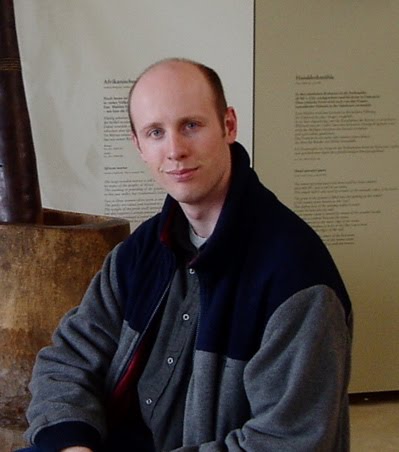
Bio
Colin Cherry is a Research Scientist at Google in Montreal. Previously, he worked at Natural Research Council Canada and Microsoft Research. He received his Ph.D. in Computing Science from the University of Alberta. His primary research area is machine translation, but he has been known to venture into parsing, morphology and information extraction. He is currently secretary for the NAACL and an action editor for the Transactions of the ACL. He has served as a workshop chair for HLT-NAACL 2012, as a publications chair for HLT-NAACL 2013, on the editorial board of Computational Linguistics from 2013 to 2015, and as an area chair for ACL 2014, IJCNLP 2017 and EMNLP 2019. He co-organized the Workshop on Deep Learning Approaches for Low-Resource NLP (DeepLo) in 2018 and 2019, and he was Research Program co-chair for the conference of the Association for Machine Translation in the Americas (AMTA) in 2018.
Candidacy Statement
From what I have seen, the role of the NAACL chair is threefold: first to keep the NAACL board on track with its recurring responsibilities of conference organization and community outreach, second to act as a liaison between the NAACL and the ACL, and third to enable and amplify the great ideas of NAACL’s board members. As a chair candidate, my primary advantage is having served as secretary for two great NAACL chairs. Over the past four years, I have watched them do these things expertly, and if selected as chair I will endeavour to do the same.
In terms of a platform, I mostly offer continuity and stability. These are extraordinary times for natural language processing, and I have no illusions about the amount of effort required just to scale our conferences and outreach to match our field’s rapid growth. I will continue to support NAACL’s widespread efforts to make its conferences more inclusive, by reducing financial barriers for disadvantaged groups, continuing to refine our strategies for family-friendliness, and improving the accessibility of our venues. I also intend to prioritize a careful discussion of how to handle remote presentation properly and consistently. Reviewing, of course, remains an ongoing concern as we attempt to scale our processes to an ever-growing flood of submissions. I will ensure that the NAACL board remains actively engaged in this discussion as it continues in our community and in those of our neighbouring fields.
Secretary (2020-2021) | Heng Ji | University of Illinois at Urbana-Champaign
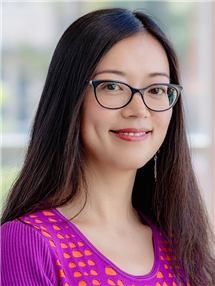
Bio
Heng Ji is a professor at Computer Science Department of University of Illinois at Urbana-Champaign. She received her B.A. and M. A. in Computational Linguistics from Tsinghua University, and her M.S. and Ph.D. in Computer Science from New York University. Her research interests focus on Natural Language Processing, especially on Information Extraction and Knowledge Base Population. She is selected as “Young Scientist” and a member of the Global Future Council on the Future of Computing by the World Economic Forum in 2016 and 2017. The awards she received include “AI’s 10 to Watch” Award by IEEE Intelligent Systems in 2013 and NSF CAREER award in 2009. She has coordinated the NIST TAC Knowledge Base Population task since 2010. She is the associate editor for IEEE/ACM Transaction on Audio, Speech, and Language Processing. She has served as the Program Committee Co-Chair of NAACL-HLT2018, NLP-NABD2018, NLPCC2015, CSCKG2016 and CCL2019, and senior Information Extraction area chair for many ACL conferences.
Candidacy Statement
As one of the top three Computational Linguistics conferences, NAACL has created a nice culture of openness, fairness and efficiency in the community. However, NAACL’s exponential growth is making it increasingly difficult for authors to gain visibility for their research, find relevant papers, new members to find mentors, for program chairs to identify conflicts of interest (COI) and match papers with reviewers. I will focus on the following initiatives.
-
To improve career and paper mentorship matching and general information sharing, I will closely work with Softconf and NAACL board to semi-automatically build and update a comprehensive NAACL member profile knowledge base: (a). A NAACL member can choose if they want a profile; (b). Use Information Extraction along with crowd-sourcing techniques to disambiguate entities and extract profiles, by integrating multiple sources (Softconf, ACL Anthology, webpages, Google Scholar pages, and conference pages); (c). Work with Softconf to integrate this knowledge base into Softconf, update it over time, and post it on the NAACL website; (d). Get input from NAACL board and/or community to create mailing lists (by area and subarea) to enable more focused resource sharing and discussions;
-
I will also contribute constructive ideas and techniques to NAACL and ACL committees on improving paper COI handling, review matching, review quality control process and author disambiguation and paper search, again by leveraging my expertise in Information Extraction and the problems I have observed from being a recent NAACL2018 PC co-chair.
-
When Amanda Stent and I were co-chairing the NAACL2018 PC, we greatly benefitted from the guidelines propagated from former conference chairs and we also wrote many guidelines/handbooks at each step for PC chairs and area chairs. I will work with NAACL conference chairs to collect all relevant materials and integrate them into a common reference repository to share with future chairs of NAACL and conferences in other regions and countries.
-
For the basic duties, I will handle external communications through the NAACL website, mailing lists and social media in a clear and timely manner, take detailed and well-organized minutes at meetings, and run elections in a well-organized, fair and transparent format. The relevant services I have done in the past include proposing and organizing the nomination and selection of the Test-of-time award at NAACL2018, leading several multi-institute research efforts, and coordinating NIST TAC-KBP for ten years.
Treasurer (2019-2020) | Jonathan May | University of Southern California / Information Sciences Institute
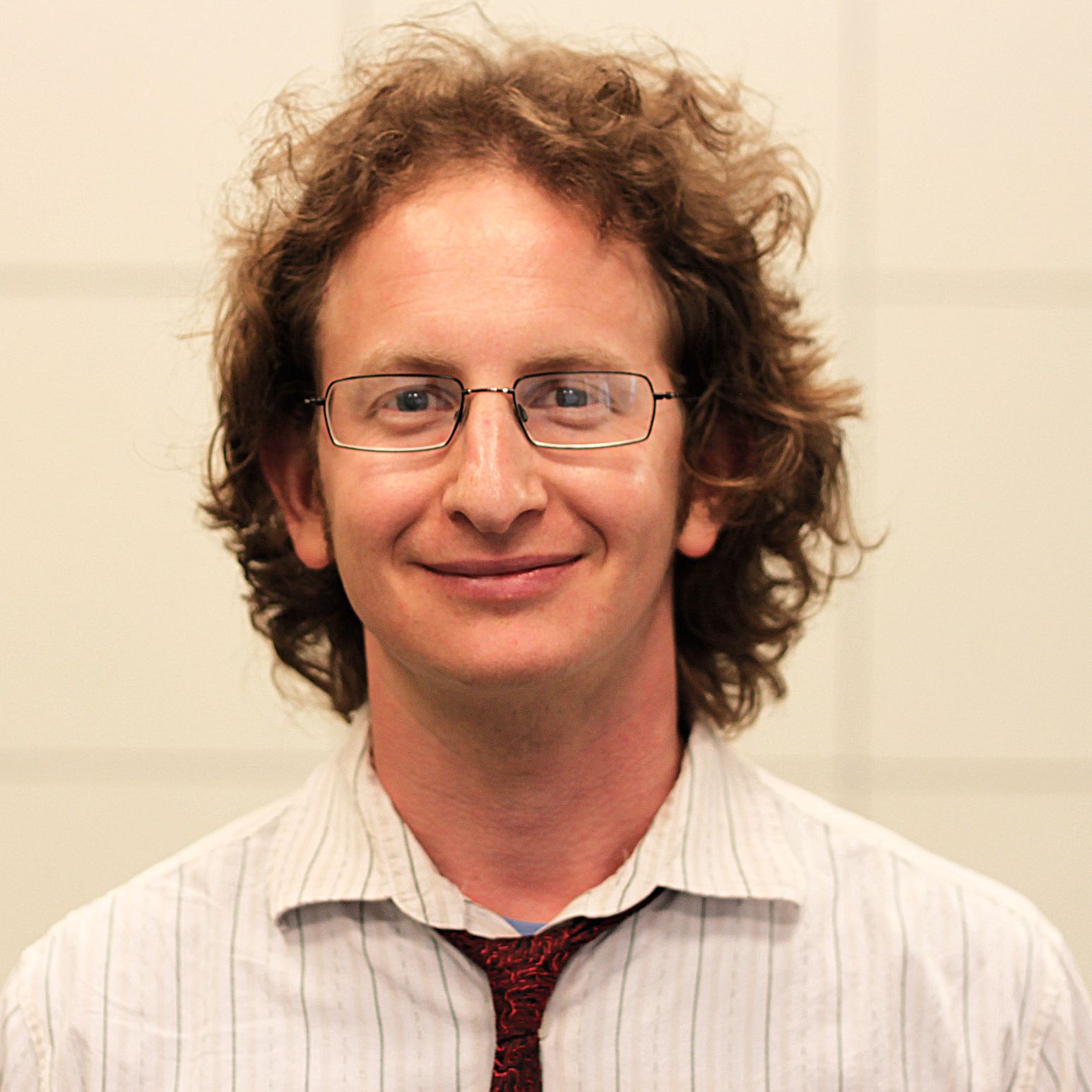
Bio
Jonathan May is a Research Assistant Professor in the Computer Science Department of the Viterbi School of Engineering at the University of Southern California, as well as a Computer Scientist with USC’s Information Sciences Institute, where he received his PhD in 2010. He has previously worked at BBN Technologies and at Language Weaver (now SDL Research). His research interests include automata theory, machine translation, semantic parsing, and machine learning. He is currently a co-organizer of the SemEval workshop. Jon previously served as an Area Chair and as Handbook Chair for NAACL 2018, social media co-chair for NAACL in 2016, and local arrangements co-chair for NAACL in 2010.
Candidacy Statement
Thank you for considering me for the position of NAACL treasurer. When I was asked to run for this position, the first thing I thought of was how fun the job sounds. No, I’m not kidding! I actually enjoy the logistics and the satisfaction of getting everything into place, which I do a lot as a PI of several large grants and an instructor of a large class. That’s given me experience in keeping complicated budgets on target, planning ahead, and communicating our progress to the people who need to know.
I also have experience with ACL leadership positions. I’m finishing my tenure as SemEval co-organizer, which requires lots of coordination with many of the people I’d be working with on the NAACL board. Last year I was the (emergency) handbook chair of NAACL, with a compressed schedule of one week. I really enjoyed the logistics and the satisfaction of getting everything into place. There’s something so soothing about perfectly balanced books, like a compiled paper draft that just fits the page limit.
I have plans for improving NAACL as treasurer while continuing the great work done by the current board. I’d like to increase sponsorship of registration fees, continue to support subsidized on-site childcare, continue to support NACLO to promote Computational Linguistics at the high school level, and, where possible, expand the previous board initiatives to support participation in emerging regions, particularly in Mexico, Central, and Southern America. These efforts will help increase diversity in conference attendees and ensure that we have the financial stability we need. However, I will continue the board’s policy of cautious and prudent spending to slowly grow our account to pre-2010 levels without sacrificing the great conference experience we all look forward to.
Past Chair (2020-2021) | Julia Hockenmaier | University of Illinois at Urbana-Champaign
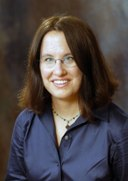
Bio
Julia Hockenmaier is an Associate Professor of Computer Science at the University of Illinois at Urbana-Champaign. She has been on the NAACL Executive Board since 2016, and is currently SIGNLL president. She is also an action editor for TACL, and was an area chair for NAACL 2015, EMNLP 2015, 2016 and 2017. Her research interests span many aspects of natural language understanding, from syntactic parsing and grammar induction with linguistically expressive grammars to image description and entailment recognition.
Candidacy Statement
Boy, do we live in exciting times! Since NLP has joined the deep learning revolution, we’ve achieved previously unheard of accuracies on established tasks that make much of “traditional” statistical NLP look as brittle as rule-based NLP must have seemed twenty years ago, and we keep reading about apparent breakthroughs in our field in the popular press, or in daily updates from the arXiv. As NAACL chair, I would strive to make sure our organization makes the most of the opportunities that present themselves as our membership and commercial interest in our work explode, while also addressing the challenges that come with this rapid growth and maturation of the field.
In particular, I would like to make sure that our conferences remain events that make it possible for newcomers and established members to meet, interact, and, well, form a community that they want to be a part of. It goes without saying that this should include anybody from the wide range of intellectual, national, and personal backgrounds that (NA)ACL attracts, regardless of whether they are students, faculty, government or industry researchers, or whether they consider themselves computational linguists or machine learning people, or which part of the Americas (or the rest of the world) they reside in. I would also like to strengthen relations with our neighboring disciplines, so that we can share best practices, e.g. for how to maintain double-blind reviewing standards when preprints have become pervasive, or for how to handle the glut of submissions we have to handle. I would also like to strengthen the education and outreach work NAACL does through its Emerging Regions Fund and the scholarships for the Jelinek Summer Schools. Finally, as the technologies we create become increasingly commodified, and receive more and more attention in the popular press, I believe that our community has an increasing responsibility to inform the general public both of the actual capabilities of the systems we create, and of the ethical issues that may arise in their deployment. I would like (NA)ACL to promote the exchange and dissemination of ideas around these topics.
Board Member (2019-2020) | Joyce Chai | University of Michigan
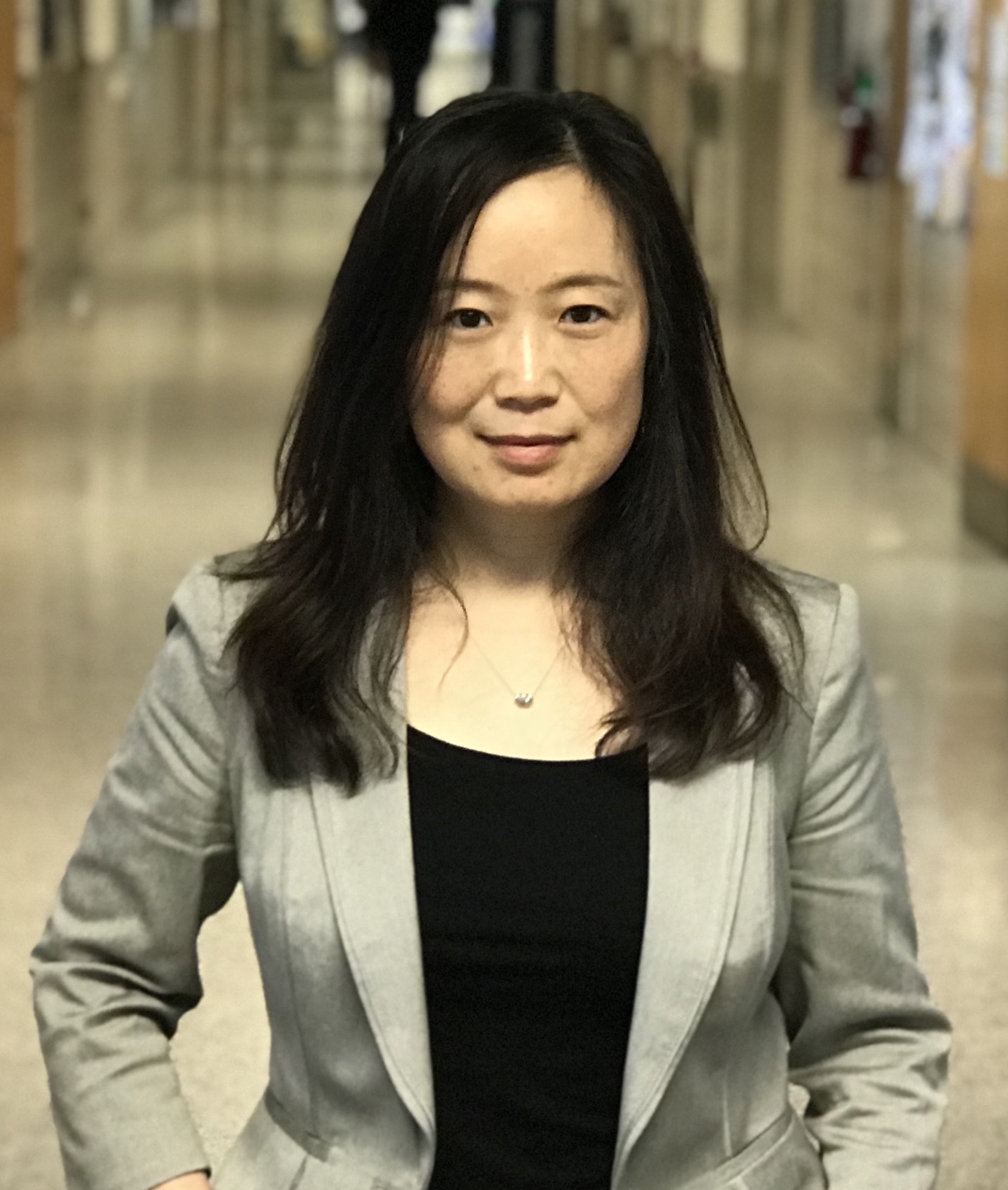
Bio
Joyce Chai is a Professor in the Department of Computer Science and Engineering at Michigan State University, where she directs the Language and Interaction Research Lab. Prior to joining MSU in 2003, she was a researcher at IBM T. J. Watson Research Center. Her research interests include natural language processing, situated dialogue agents, information extraction and retrieval, and intelligent user interfaces. Her recent work has focused on grounded language processing to facilitate situated communication with robots and other artificial agents. Throughout the years, she has served on many conference/workshop organizations in different roles. More recently, she served as Program Co-chair for the Special Interest Group in Dialogue and Discourse (SIGDIAL) in 2011, the ACM International Conference on Intelligent User Interfaces (IUI) in 2014, and the North America Chapter of ACL – Human Language Technology (NAACL-HLT) in 2015. She holds a Ph.D. in Computer Science from Duke University.
Candidacy Statement
I have two goals in joining the NAACL executive board. First, I would like to work with the board to seek more opportunities to broaden interdisciplinary participation. We should find ways to encourage more interdisciplinary work at NAACL, for example, in the intersection of language, vision, robotics, and cognitive modeling. We should continue to reach out to relevant communities and actively solicit and invite interdisciplinary workshop/tutorial proposals for NAACL. We can also collocate our annual meeting with other major conferences in related areas and jointly create opportunities (e.g., brown bag lunches at the meeting) for interested researchers to meet and connect. Second, I would like to explore ways that NAACL can help encourage young researchers to enter academia and help them make a successful transition. NAACL can provide a platform to connect junior faculty and senior people. For example, NAACL can host a gathering at its annual conference to bring junior/senior people together to share experiences in NLP pedagogy, student supervising, grant writing, work-life balance, and other issues related to an academic career.
Board Member (2019-2020) | Graham Neubig | Carnegie Mellon University
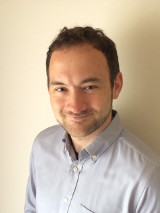
Bio
Graham Neubig is an assistant professor at the Language Technologies Institute of Carnegie Mellon University. His work focuses on natural language processing, specifically multi-lingual models that work in many different languages, and natural language interfaces that allow humans to communicate with computers in their own language. Much of this work relies on machine learning to create these systems from data, and he is also active in developing methods and algorithms for machine learning over natural language data. He is also active in developing open-source software, and is the main developer of the DyNet neural network toolkit.
He publishes regularly in the top venues in natural language processing, machine learning, and speech, and his work occasionally wins awards such as best papers at EMNLP and EACL. He is frequently an area chair for conferences such as NAACL, ACL, COLING, and ICLR. He also was the founder of multiple ACL-affiliated workshops, most recently the Workshop on Neural Machine Translation.
Candidacy Statement
I think NAACL has a lot to be proud of, particularly its premier high-impact conference that is growing year-by-year. However, I think there are growing pains related to being part of such a burgeoning field. While there are undoubtedly a wide variety of issues facing NAACL, in particular there are two that I would like to advocate for: maintaining quality of the reviewing process, and better mechanisms for remote participation in conferences:
First, with regards to reviewing, how can we ensure that our community can strive for the best results possible given the constraints on time that we will inevitably have to deal with? Also, how can we make it the most pleasant experience possible for all parties? Some preliminary ideas I have on this front include the following:
- It would be nice if reviewers could review papers that match their interests. We could help ensure this is the case by introducing automatic tools for matching reviewers to papers such as the Toronto Paper Matching System.
- Given the rapid expansion of the field and more junior reviewers, it would be nice to ensure that we have a good mix of junior and senior reviewers on each paper. We could keep track of the career stage of each reviewer, and consider this in allocations. It would also be useful overall to have a more formal process of maintaining information about who reviewed for which conferences under which areas.
- I strongly believe that author responses and the resulting discussion make the review process better, but feel we lack transparency in this process. Perhaps we could make post-response discussions public to the authors so they could understand what went in to making the decisions.
- I think the simple but structured review form we saw in EMNLP 2018 (which was in turn inspired by NAACL 2018) was a huge step forward. I would propose adding one more box to the form on “constructive suggestions for future work”. I think this would make the review process more friendly and beneficial for all parties.
I don’t think that we can expect conference or area chairs to implement each of these processes manually, so coming up with systematic and automated ways of doing so that are passed down conference-by-conference is imperative.
Second, I would like to consider methods for improving remote participation in conferences. We live in an age where it is now very possible to broadcast our events online, which would be a great boon to those who could not attend the conference. I would specifically like to consider the following improvements:
- Live broadcasts of talks in all of the sessions. Depending on budgetary constraints, this could be done more formally through the AV people at the venue, or informally through simple streaming services staffed by volunteers.
- Contingent on 1., we could also use a live internet Q&A site to allow people who were joining remotely to ask questions, and have other participants vote on the questions they were most interested in.
- Finally, given that many people cannot join the conference for visa, financial, or personal reasons, I would like to consider allowing some subset of the presenters to make their presentations remotely.
Board Member (2020-2021) | Smaranda Muresan | Columbia University
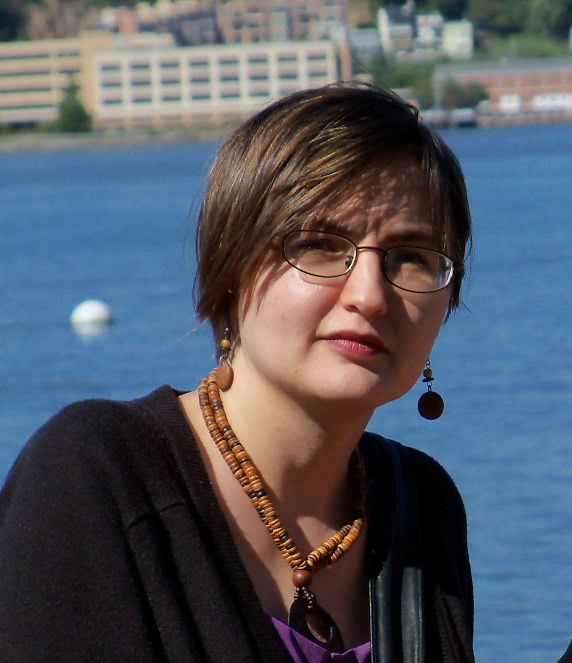
Bio
Smaranda Muresan is a Research Scientist at the Data Science Institute at Columbia University. Her research focuses on computational models for understanding language in context, such as social context or visual context, with application to computational social science and education. She served as Faculty Advisor for NAACL 2015 Student Research Workshop, and as a co-organizer of the 2nd Workshop on Argumentation Mining at NAACL 2015 and the Workshop on Figurative Language Processing at NAACL 2018. She served the ACL/NAACL/EMNLP community as reviewer and area chair and will serve as Program Co-chair for the Special Interest Group on Discourse and Dialogue (SIGDIAL 2020) and as senior area chair for ACL 2020.
Candidacy Statement
NAACL has a top quality conference and a fast growing community. As a member of the board I would like to work towards maintaining the high quality of the conference and supporting inclusiveness and interdisciplinary research. One priority would be to ensure that a larger number of high quality papers introducing creative and non-mainstream ideas are part of the NAACL program. Another priority, closely linked, would be to improve the quality of reviewing especially given the explosion in number of paper submissions. The hierarchical model of having one or two senior area chairs (SACs) and many area chairs (AC) who will be responsible for a small number of papers (at most 20) is a step forward. This model will allow SACs and ACs to propose the list of reviewers in their area based on expertise (possibly consulting or starting from list of reviewers in previous years) and to ensure that each paper is assigned a good mixture of senior and more junior reviewers. I also think that a simple and structured review form that encourages reviewers to provide arguments to support their assessment of papers’ strengths and weaknesses is a step forward to ensure quality reviews. And last but not least, I would argue in favor of keeping the author response as part of the reviewing process and having a constructive meta-review for each paper that communicates to the authors the main issues raised during the discussion period besides the main points in the reviews.
Board Member (2020-2021) | Thamar Solorio | University of Houston
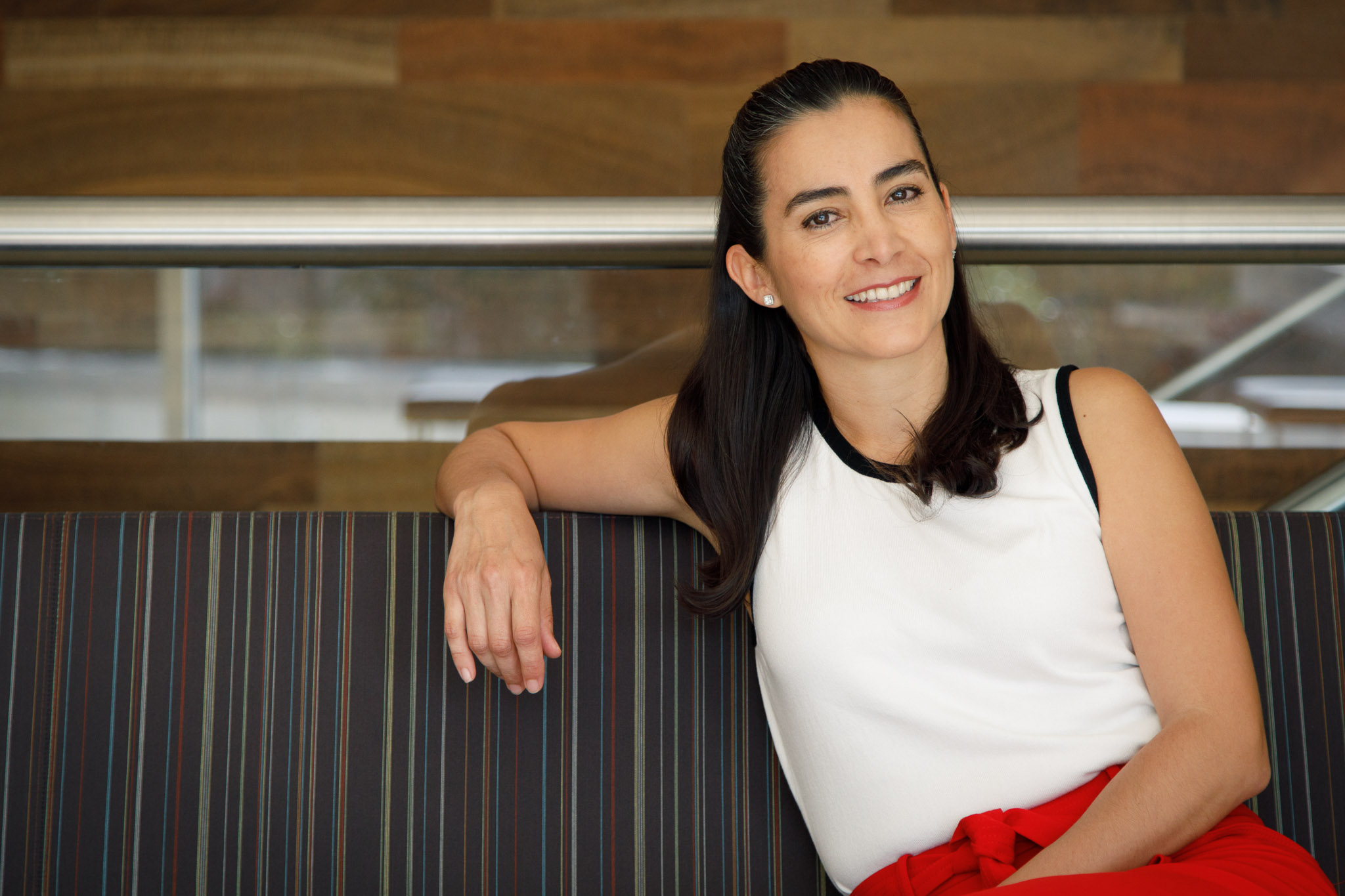
Bio
Thamar Solorio is an Associate Professor in the Department of Computer Science at the University of Houston (UH). Her main research interests include stylistic modeling of text and enable technology and information extraction for user generated data. She has M.S. and PhD degrees in Computer Science from INAOE, Puebla, Mexico. Her research program has been supported by the Department of Defense, the National Science Foundation, the Office of Naval Research, and ADOBE Inc. She is the recipient of an NSF CAREER award for her work on authorship analysis. She is also recipient of the 2014 Emerging Leader ABIE Award in honor of Denice Denton. She serves as editorial board member for the Computer Speech and Language Journal. She has served as reviewer and area chair to ACL, NAACL, AAAI, among others, and was program co-chair for NAACL 2019.
Candidacy Statement
Our community keeps growing, and while this rapid growth is welcomed as it brings innovation, energy, and new brilliant minds, it also strains our infrastructure and it makes it harder for our community to mentor younger researchers and scale up our diversity efforts. If elected as a member of the NAACL board, I plan to make progress towards the following initiatives:
-
I would like to explore alternatives to START for our conference submission management system, for example, the one used by AAAI. In my experience as PC co-chair for NAACL 2019, and as observed in the follow-up conferences, START showed technical challenges supporting the number of submissions and users. Additionally, there is also a lot of manual work still needed when assembling the different components of the conference (handbook, proceedings, conference schedule, and app). This manual work makes the process error prone. I plan to invest efforts into improving this aspect by investigating other popular conference management systems.
-
Design and launch a “mentor the reviewers” system so that well-seasoned reviewers can provide advice and mentorship to less-experienced reviewers to improve the overall quality of the review process while still allowing younger researchers and researchers new to NAACL to contribute to the process.
-
Support initiatives like the WiNLP workshop to increase their visibility by exploring ways in which some of the talks can be allocated space during the main conference event. For example, talks from previous WiNLP events, voted for by workshop attendees, can be invited to be presented at the main conference. In this way, awareness of very important issues presented at WiNLP can be broadcast to the wider NLP community.
-
Explore a tiered registration cost to our conference so that large companies pay higher registration costs for their researchers, while researchers from places with low travel budgets and postdoctoral researchers pay fees closer to the student registration costs. This will keep the conference costs manageable while allowing more room to support researchers from underrepresented regions and institutions.
Board Member (2020-2021) | Aline Villavicencio | Federal University of Rio Grande do Sul and the University of Sheffield
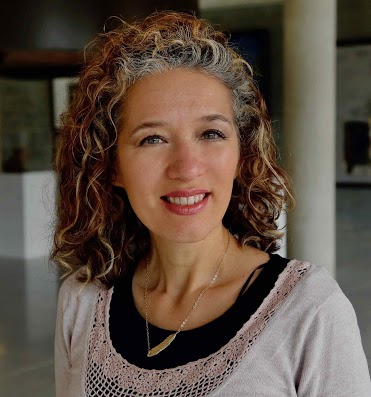
Bio
Aline Villavicencio is a Reader/Professor in Computer Science affiliated to the Federal University of Rio Grande do Sul (Brazil) and to the University of Sheffield (UK). Her research interests include lexical semantics, multilinguality, and cognitively motivated NLP. She received her PhD from the University of Cambridge (UK), held postdoc positions at the University of Cambridge and University of Essex (UK) and was a Visiting Scholar at institutions like the Massachusetts Institute of Technology (USA) and École Normale Supérieure (France). She is the PC co-chair of CoNLL-2019, Area Chair for events like ACL-2019, NAACL 2018, COLING 2018, and General co-chair for the 13th Int. Conf. on Computational Processing of Portuguese (PROPOR 2018). She is a member of the advisory board of WiNLP, of the editorial board of TACL, JNLE, Journal of Language Modelling and Linguamatica, and a reviewer for various conferences, in addition to having co-chaired numerous *ACL workshops on Cognitive Aspects of Computational Language Acquisition and on Multiword Expressions. She has also co-edited special issues and books dedicated to these topics.
Candidacy Statement
If elected to the NAACL board one of my main goals is working towards increasing geographical diversity and inclusion of underrepresented NLP communities at NAACL events. There are many thriving NLP groups doing amazing work on a rich diversity of (often under-resourced) languages, and their greater presence at *ACL events would enrich and facilitate the exchange of knowledge and ideas and foster collaborations. This includes supporting NAACL initiatives and activities that promote diversity and inclusion, like WiNLP which has successfully increased participation of underrepresented communities. I am also committed towards promoting further the diversity and inclusion of areas in NAACL events. There is a growing community working towards strengthening the links with researchers from cognitive sciences, brain science, physics and biology. I will work towards supporting these efforts and promoting the greater presence of interdisciplinary initiatives in NAACL events for facilitating collaborations.